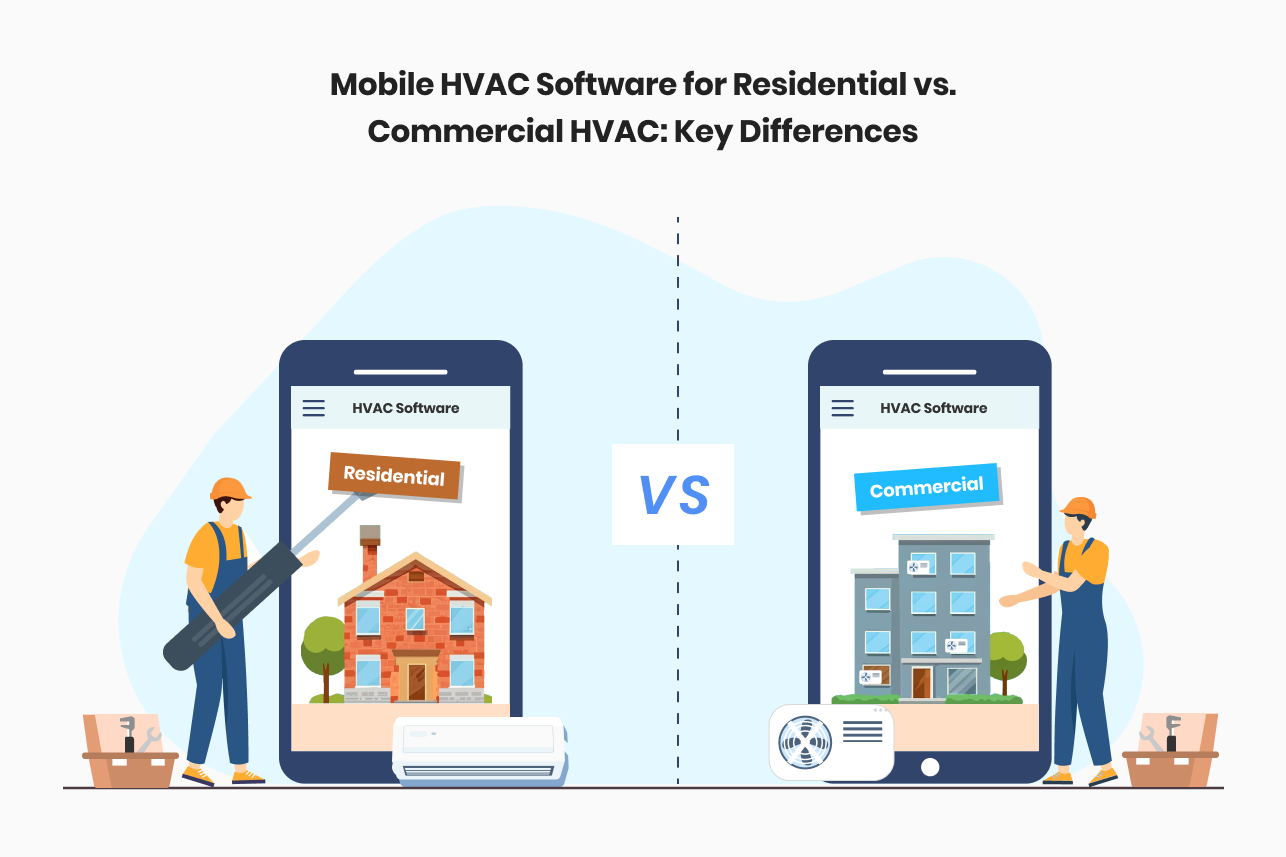Mobile HVAC (Heating, Ventilation, and Air Conditioning) software is designed to streamline and enhance the efficiency of HVAC operations. While many features are common between residential and commercial HVAC software, there are key differences to consider due to the distinct nature of these two sectors. Here are some of the key differences:
- Scale and Complexity:
- Residential HVAC: Primarily deals with smaller systems and single-family homes. The software needs to handle a lower volume of data and simpler configurations.
- Commercial HVAC: Involves larger and more complex systems, often servicing multiple zones within large buildings. The software must be capable of managing extensive data and handling intricate setups.
- System Size and Configurations:
- Residential HVAC: Typically involves standard-sized heating and cooling units for homes. The software should support configurations common in residential settings.
- Commercial HVAC: Deals with a variety of system sizes and configurations, including complex setups with multiple HVAC units, ductwork, and control zones. The software must be versatile enough to handle diverse equipment.
- Multi-site Management:
- Residential HVAC: Primarily focuses on individual homes or apartments. The software may not need extensive support for managing multiple sites simultaneously.
- Commercial HVAC: Often requires the capability to manage HVAC systems across multiple commercial buildings or different floors within a single building. The software should facilitate centralized control and monitoring for multiple sites.
- Load Calculation and Energy Efficiency:
- Residential HVAC: Emphasizes on simpler load calculations for individual homes, with a focus on energy efficiency at the household level.
- Commercial HVAC: Requires more sophisticated load calculations to determine the heating and cooling needs of larger spaces. Energy efficiency considerations are crucial, especially in the context of larger and more expensive HVAC systems.
- Regulatory Compliance:
- Residential HVAC: Generally subject to local residential building codes and regulations. Compliance may be simpler compared to commercial regulations.
- Commercial HVAC: Involves adherence to more complex and stringent building codes, safety regulations, and environmental standards. The software should assist in ensuring compliance with these regulations.
- Work Order Management:
- Residential HVAC: Typically involves individual work orders for specific homes or apartments.
- Commercial HVAC: Requires the ability to manage multiple work orders simultaneously, often across different locations. Coordination and scheduling are critical aspects.
- Reporting and Analytics:
- Residential HVAC: Primarily focused on individual system performance and maintenance records.
- Commercial HVAC: Requires robust reporting and analytics tools to provide insights into the performance of large and interconnected HVAC systems, facilitating informed decision-making.
When selecting mobile HVAC software, it’s essential for businesses to consider the specific needs of their sector (residential or commercial) and choose a solution that aligns with the scale, complexity, and regulatory requirements of their operations.
